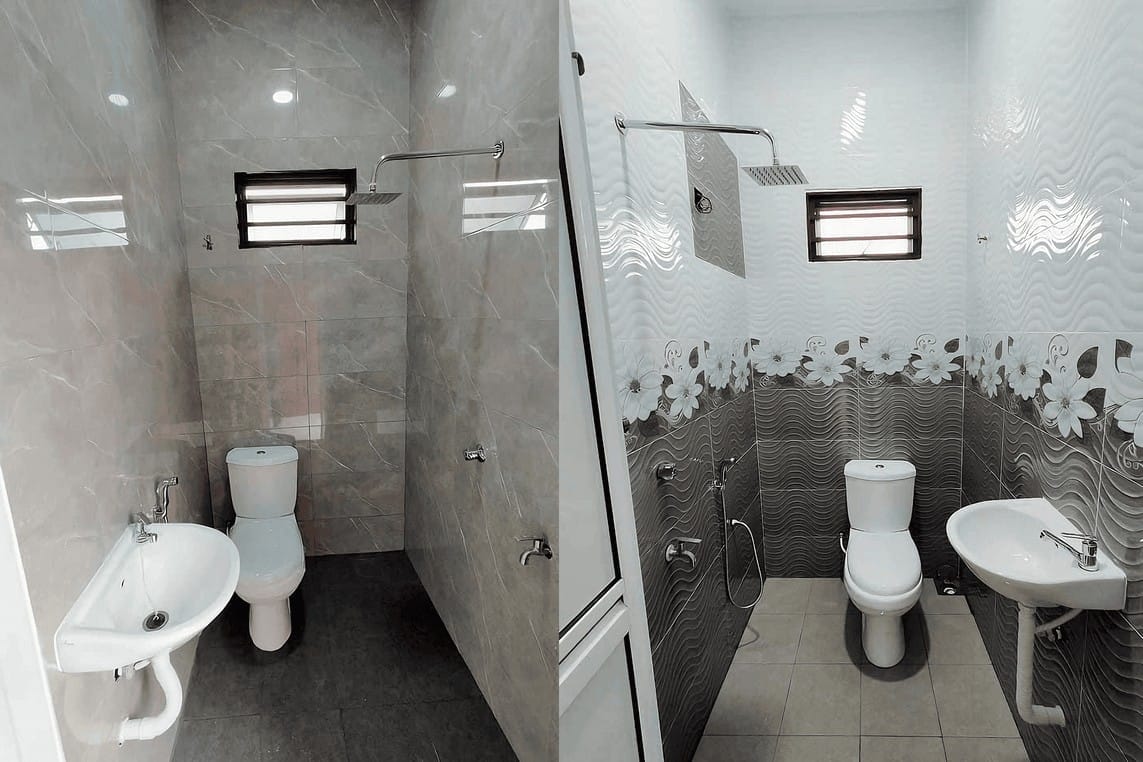How Progress Billing Helps You Stay in Control of Your Home Construction Costs 💸🎛️ | RumahHQ

When it comes to building your dream home, keeping a reigning grip on construction costs can sometimes feel like trying to juggle water. You’re excited about the project, but the expenses can quickly spiral out of control if you’re not careful. Enter progress billing—the unsung hero of construction financing! 🛠️💰 This smart approach helps you manage your budget while ensuring that work is completed on time and to specification. In this article, we’ll explore how progress billing can be your trusty sidekick in navigating the often tricky waters of home construction costs in Malaysia. So, if you’re ready to take charge and make sure your hard-earned ringgit are spent wisely, let’s dive in!
Understanding Progress Billing and Its Importance in Construction Management
Progress billing is a game-changer in the construction industry, particularly for those tackling home projects. By breaking down the overall costs into manageable payment increments, homeowners can stay well-informed and financially savvy throughout the process. Instead of facing a hefty final bill, clients can pay as various milestones are achieved, such as the completion of the foundation, framing, or roofing, ensuring they only pay for what has been successfully delivered.
This billing method not only helps in budgeting but also encourages transparency between you and your contractor. You can keep track of your spending while making sure that the work done aligns with your expectations. Here’s why it’s vital:
- Cash Flow Management: By paying as the project progresses, you can maintain better control over your finances.
- Performance Tracking: Regular payments tied to project milestones motivate contractors to stay on schedule and maintain quality.
- Flexibility: Should any issues or delays arise, it allows you to reassess before making further payments.
Moreover, integrating progress billing into your project management isn’t just smart—it’s essential. Here’s a simplified breakdown of how it generally works:
| Milestone | Percentage Paid | Notes |
|---|---|---|
| Project Kick-off | 10% | Initial deposit for securing the project. |
| Foundation Complete | 25% | Payment upon visible completion of foundation work. |
| Roofing Finished | 30% | Payment after structural work completion. |
| Final Inspection | 35% | Remaining balance upon project completion and satisfaction. |

Breaking Down the Benefits: Why Homeowners Embrace Progress Billing
Progress billing is the secret sauce that homeowners are using to keep their construction projects on track and within budget. Instead of paying a lump sum upfront, homeowners find comfort in knowing they’ll be billed based on the work completed at each stage of the project. This approach offers a clear view of how funds are being allocated—leading to a more efficient and transparent process. As payments align with project milestones, it helps in fostering trust between contractors and homeowners.
There are several compelling advantages to this payment structure. For starters, it minimizes the risk of overbudgeting. Homeowners can easily track expenses and adjust their spending plans as needed. When the contractor completes a phase of work, they request payment, allowing homeowners to assess whether they are satisfied with the results before moving forward. Additionally, this method enables better cash flow management, letting homeowners allocate funds strategically and avoid the common pitfalls of traditional payment structures.
Another significant benefit is the increased accountability that comes with progress billing. With every payment tied to clearly defined stages, contractors are incentivized to deliver quality results on time. Some homeowners have even reported feeling more engaged throughout their construction journey because they’re notified of progress regularly. This keeps communication channels open and allows for quicker decisions on adjustments. Here’s a simple overview of how progress billing works:
| Billing Stage | Payment Percentage | Key Deliverables |
|---|---|---|
| Initial Deposit | 10% | Project Kick-off & Site Preparation |
| Foundation Completion | 25% | Foundation Set & Inspected |
| Framing Completion | 25% | Walls, Roof & Structure Up |
| Final Completion | 40% | Final Inspection & Handover |

Navigating the Payment Schedule: Aligning Costs with Project Milestones
When you’re deep in the trenches of home construction, it’s easy to feel overwhelmed by the financial obligations that come with it. Progress billing allows you to align your payments with specific milestones, helping you keep a close eye on costs without sacrificing cash flow. Whether it’s the completion of the foundation, roofing, or final touches, each payment is tied directly to the progress made, giving you transparency and control over your budget.
To ensure you’re always on top of your financial commitments, consider these benefits:
- Clear Budgeting: Pay only for what has been completed, making it easier to track expenses.
- Improved Cash Flow: Spread costs over time, reducing the financial burden at any single point.
- Motivation for Contractors: Timely payments can encourage contractors to keep projects on schedule.
When structuring the payment schedule, think about drafting a simple table that outlines milestones and associated payments. Here’s a quick example:
| Milestone | Payment Amount |
|---|---|
| Foundation Completion | RM20,000 |
| Roof Installation | RM15,000 |
| Interior Finishing | RM10,000 |
This way, it’s crystal clear when and how much you should be paying, keeping everything on track and within budget!

Enhancing Transparency: How Progress Billing Boosts Communication
Progress billing plays a pivotal role in ensuring that everyone involved in your home construction is on the same page. With its systematic approach, communication becomes more transparent, mitigating the chances of surprises when payment time rolls around. When clients receive detailed, itemized bills at various project stages, they can easily track expenditures and understand where their funds are being allocated. This clarity not only reduces anxiety but also encourages an open dialogue between homeowners and contractors.
Moreover, this method makes it easier for you to voice any concerns or questions at each billing milestone. Instead of waiting until the end of the project to address potential issues, you can discuss progress regularly, leading to timely resolutions. A collaborative environment fosters transparency and accountability from both parties, encouraging a more harmonious working relationship. Here are some benefits of this communication-enhancing approach:
- Regular Updates: Frequent progress reports keep everyone informed.
- Cost Control: Helps you stay within your budget by monitoring spending.
- Quality Assurance: You can assess the work at each billing stage.
Additionally, implementing progress billing can positively impact your overall project timeline. With frequent communication regarding costs and project status, both you and your contractor can proactively tackle potential bottlenecks. If a particular area of construction isn’t progressing as expected, it’s easier to make necessary adjustments early on, avoiding costly delays later. Below is a simple table illustrating the correlation between timely payments and project efficiency:
| Payment Stage | Efficiency Impact |
|---|---|
| Foundation Completion | Ensures structural integrity checks are completed promptly. |
| Roof Framing | Completes waterproofing to prevent weather delays. |
| Final Inspection | Prepares the home for timely move-in dates. |

Mitigating Financial Risks: Keeping Unexpected Costs at Bay
Managing finances during a home construction project can feel like walking a tightrope. One moment, you’re on track, and the next, an unforeseen expense pops up, throwing everything out of balance. That’s where implementing a progress billing system becomes a game-changer. With progress billing, you’re essentially breaking down your overall project costs into smaller, manageable payments that coincide with specific milestones. This not only helps with cash flow but also keeps you informed about what you’re paying for and when, minimizing any nasty surprises along the way.
One of the key benefits of progress billing is its transparent approach to costs. As construction progresses, you can closely monitor the budget by tracking completed tasks against the amounts billed. Consider these advantages:
- Early Warning of Overages: You can identify potential financial overruns before it’s too late.
- Flexibility in Payments: You have options to adjust future payments based on project developments.
- Enhanced Budget Control: You stay in command of your spending with a clear view of what’s been paid versus what remains.
Visualization aids in understanding your construction costs, and a simple table can illustrate how progress billing works over the various project phases:
| Project Phase | Percentage Complete | Amount Billed |
|---|---|---|
| Foundation | 25% | RM 25,000 |
| Framing | 50% | RM 40,000 |
| Finishing | 100% | RM 35,000 |
This way, you can clearly see how much you’ll need to allocate as each phase of your home construction unfolds. By aligning costs with project completion, progress billing acts as a solid shield against unexpected financial pitfalls, ensuring you stay firmly in control of your budget throughout the entire journey.

Tips for Setting Up an Effective Progress Billing Plan
To kickstart your progress billing plan, it’s crucial to establish clear milestones at the outset. Think of these milestones as the checkpoints in your home construction journey. Consider the various phases of construction, such as:
- Site Preparation: Clearing and leveling the land.
- Foundation Work: Pouring concrete and building the base.
- Rough Framing: Erecting walls and roof structures.
- Finishing Touches: Installations of fixtures, fittings, and final touches.
Next, it’s essential to communicate openly with your contractors about these milestones. Setting clear expectations helps everyone stay on the same page, minimizing misunderstandings. It’s a good idea to schedule regular check-ins, say weekly or biweekly, to discuss progress and address any delays or issues that may arise. Make sure to document everything! Maintain a record of each completed milestone, along with the corresponding invoices, to create a transparent billing history.
Lastly, prioritize flexibility in your plan. Construction can be unpredictable, and adapting to changes without losing control over your budget is key. Prepare a contingency fund as part of your overall budget, so you can handle unforeseen expenses effortlessly. An example of a simple breakdown of your budget allocation could look like this:
| Category | % of Total Budget |
|---|---|
| Site Preparation | 10% |
| Foundation | 20% |
| Structural Work | 30% |
| Finishes | 25% |
| Contingency | 15% |

Collaborating with Contractors: Ensuring Mutual Accountability
When teaming up with contractors for your home construction, having a clear system in place can make all the difference in keeping everyone on the same page. Utilizing progress billing is one of the smarter strategies to implement. It allows you to pay in phases based on the work completed, rather than front-loading payments. This method not only helps you maintain a tighter grip on your budget but also promotes a sense of shared responsibility between you and your contractors.
To maximize the effectiveness of progress billing, it’s crucial to establish transparent communication from the get-go. Here’s how you can achieve that:
- Set clear milestones that outline what constitutes completion for each phase.
- Agree on payment schedules that correspond to these milestones, ensuring that both parties are aware of when payments are due.
- Regularly assess the quality of work completed to avoid misunderstandings over payment and expectations.
Another key aspect to consider is the documentation of progress. Keeping a detailed record not only facilitates smooth transactions but also provides a point of reference if any disputes arise. Here’s a simple
| Milestone | Payment Percentage | Date of Completion |
|---|---|---|
| Foundation Completion | 25% | 01/03/2023 |
| Framing Done | 35% | 15/04/2023 |
| Roof Installation | 20% | 30/05/2023 |
| Final Interior Work | 20% | 15/07/2023 |
to illustrate how payments can be structured over the project timeline. By implementing these practices, you not only protect your financial interests but also foster a working relationship based on trust and accountability.
Maximizing Your Budget: Strategies for Efficient Cost Management
When you’re embarking on a home construction project, keeping an eye on costs is crucial. Progress billing acts as a financial checkpoint, ensuring that you pay for work that’s been completed. This method not only aligns payments with the project’s timeline but also gives you leverage. You can assess the quality of completed work before releasing funds, which means you remain in the driver’s seat throughout the process. It allows for better planning and reduces the chances of overspending.
One of the brilliant aspects of progress billing is the flexibility it offers. You can structure the payment schedule based on significant project milestones, such as:
- Foundation Completion
- Frame Installation
- Roofing Structure
- Final Inspection
This approach not only breaks down payments into manageable chunks but also helps maintain momentum on the project. As each milestone is reached, your confidence in funding the next phase increases, keeping both your budget and timelines agile and in check.
Moreover, it’s important to keep track of all contracts and agreements regarding progress billing. Having clear documentation ensures no surprises pop up later on. Below is a simple overview of how progress billing can streamline your financial management:
| Aspect | Benefits |
|---|---|
| Payment Control | Pay only for completed work. |
| Budgeting Ease | Divide costs into milestones. |
| Quality Assurance | Inspect before making payments. |
| Reduced Financial Risk | Less chance of unexpected costs. |
By leveraging progress billing, you effectively build a safety net around your budget, ensuring that your home construction project remains both on time and within financial constraints. It’s all about managing expectations and keeping the lines of communication open with your contractors.
To Wrap It Up
As we wrap up our chat on progress billing, it’s clear that this payment method isn’t just about managing your cash flow; it’s about giving you the reins on your home construction journey. By breaking down costs into manageable chunks, you can stay on top of your budget and keep those unexpected expenses at bay. And let’s be honest, no one wants to be staring at a surprise bill halfway through building their dream home!
So, as you gear up to dive into your construction project, remember that progress billing can be a powerful tool in your financial toolkit. It helps ensure that you’re not just watching your money fly out the window but rather channeling it effectively into each stage of your home build.
With a clear understanding of how and when payments are required, you can focus more on making decisions that elevate your home’s design without losing sleep over costs. Just take a deep breath, communicate with your contractor, and you’ll be on your way to creating a space that’s uniquely yours—without the financial stress!
Happy building, Malaysia! 🏗️✨











